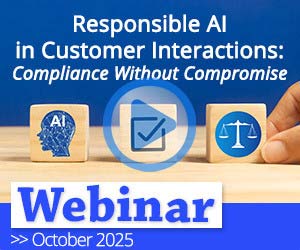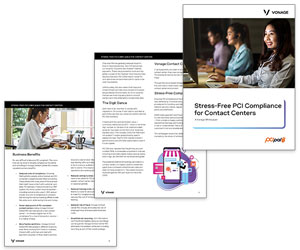In this article, we look at the UK’s “do not call” list and explain why it is so important for contact centres to cross-reference their data against it.
The definition of a “Do Not Call” list
In the UK, the definition of a “Do Not Call” list comprises 2 key categories:
- Individuals registered with the Telephone Preference Service (TPS)
- Individuals who ask to be removed from your data list after the first point of contact
Companies need to respect the wishes of the individuals in both of these categories to avoid being fined.
1. The Telephone Preference Service (TPS)
The Telephone Preference Service (TPS) is a central opt-out register through which individuals can record their preference not to receive unsolicited sales or marketing calls. This is a free service.
All responsible companies screen their data against the TPS data, preventing these individuals from being contacted. However, this doesn’t stop individuals from receiving calls from irresponsible companies.
Click here to register your telephone number with the TPS
You can be heavily fined for calling someone on a ‘do not call’ list
Anyone making calls to individuals registered with the Telephone Preference Service (TPS) risks being fined by Trading Standards.
In 2014, a local Trading Standards authority made a legal first by prosecuting a company for calling people registered on the TPS ‘do not call’ list.
Dorset County Council Trading Standards Service issued the fine to a home improvements company, Apple Group Holdings Limited, for making unwanted sales and marketing calls to residents registered on the TPS.
The company was fined £36,000 for causing ‘persistent nuisance’ to elderly and vulnerable people. This action has set a legal precedent, paving the way for companies operating nationally to be fined for TPS breaches in every county they operate in.
Some call providers offer live TPS cleansing at no extra cost
Some call providers offer live TPS cleansing at no extra cost. If this is done at network level, the numbers you call will be checked for TPS registration before each call is actually connected.
This means you no longer have to shell out to TPS to cleanse your data, taking the risk that some of your numbers may have been registered with the TPS since you last cleansed it.
Look out for live TPS cleansing if you’re carrying out unsolicited sales and marketing calls, it can save you thousands of pounds in regulatory fines.
With thanks to Martyn King at Nexbridge
2. Respecting the wishes of those who ask “not to be contacted again”
A company can also build up their “Do Not Call” list – after their data has been screened against those registered with the Telephone Preference Service – by adding in callers who request that the company does not contact them again.
To make this simple for everyone involved, the agent desktop can be set up to include a “do not call” option – which they can select after the call has ended, as part of their after-call work.
Over time, agents calling the numbers in the database can recategorise these individuals’ details.
Ignoring these requests also carries the risk of fines
It is important to respect the wishes of those who ask not to be contacted again, even if they have not registered with the Telephone Preference Service.
This is because companies making repeat calls to individuals who have requested not to be contacted again risk being reported to the Information Commissioner’s Office – as this is standard advice for anyone who feels they are receiving “nuisance calls”.
In the event that an individual does request to be taken off your calling list, here is a good, standard response your agents can use:
“I can certainly add you to our own “do not call” list right away. Unfortunately, this will only stop our company from calling you again in future. If you would like to be taken off everyone’s database, we suggest that you register with the Telephone Preference Service. Would you like me to give you the website details?”
The agent can then proceed to give the caller the following website – www.tpsonline.org.uk
Want to find out more?
For more information on this topic, see our article FAQs – Are You Staying on the Right Side of the Law?
Author: Megan Jones
Published On: 29th Apr 2016 - Last modified: 12th Aug 2025
Read more about - Expert Insights, An Introduction to Contact Centres, Compliance, Nexbridge, Outbound
















